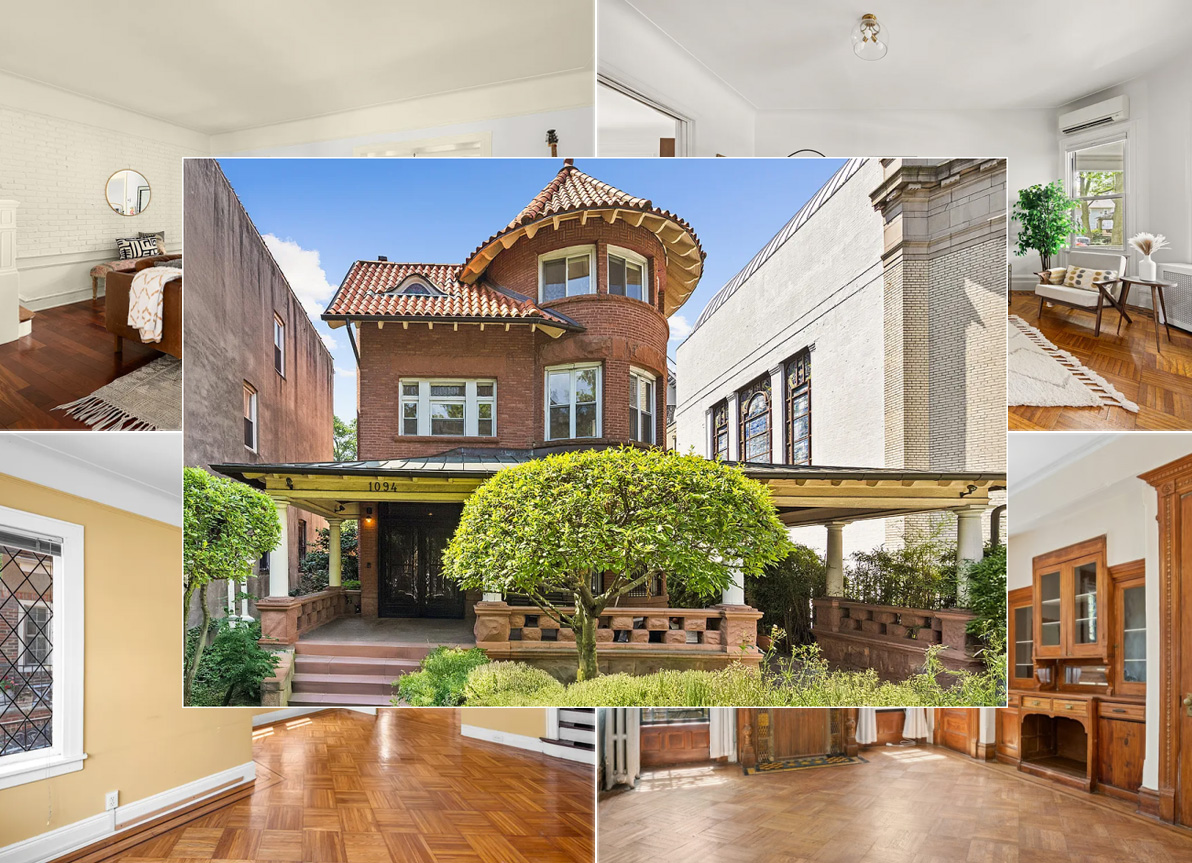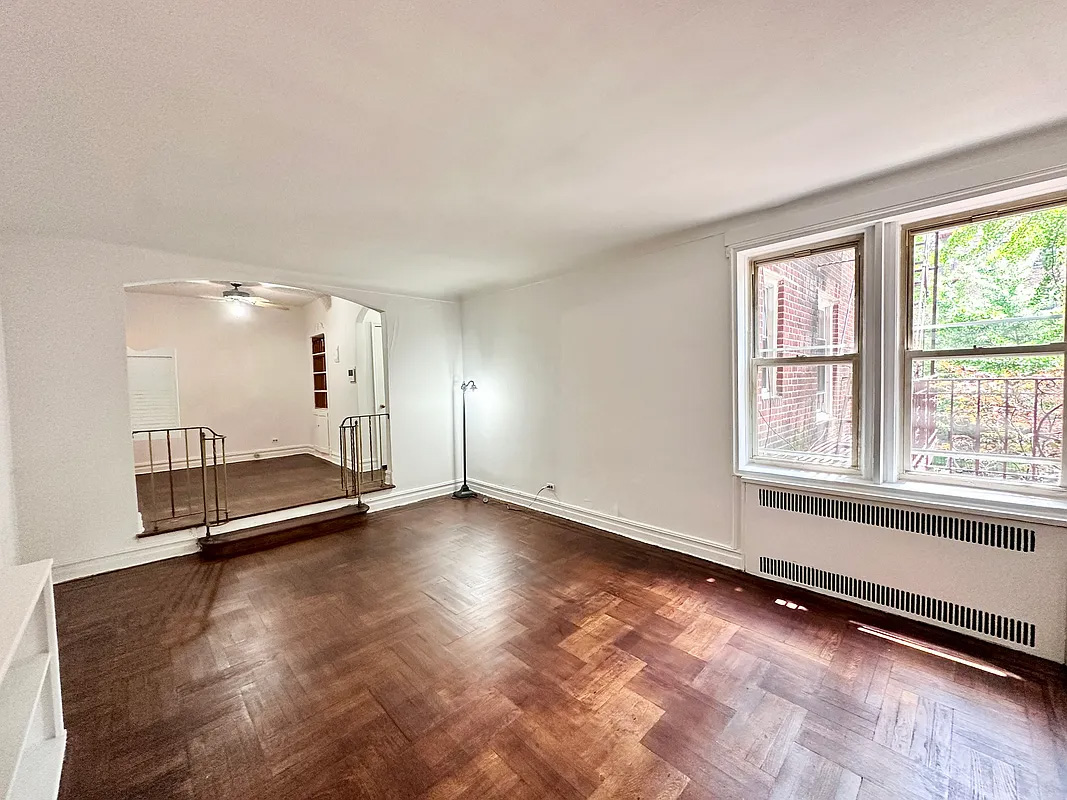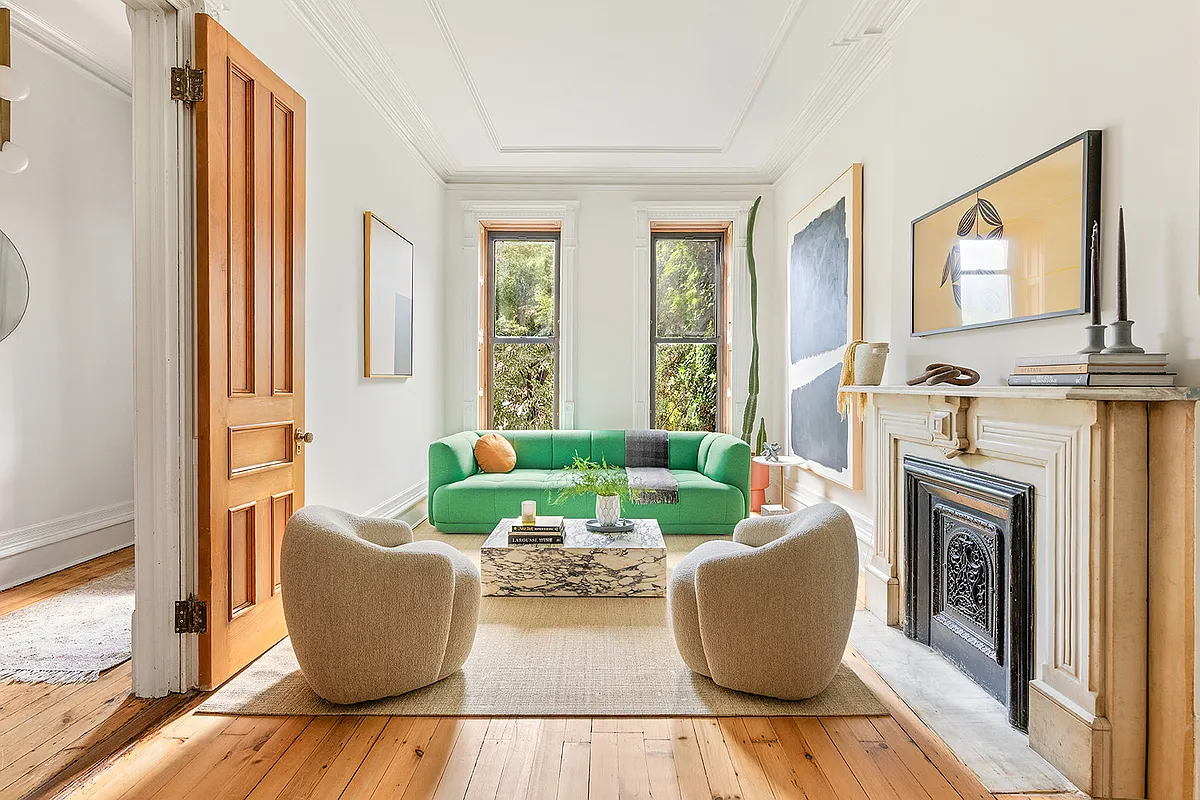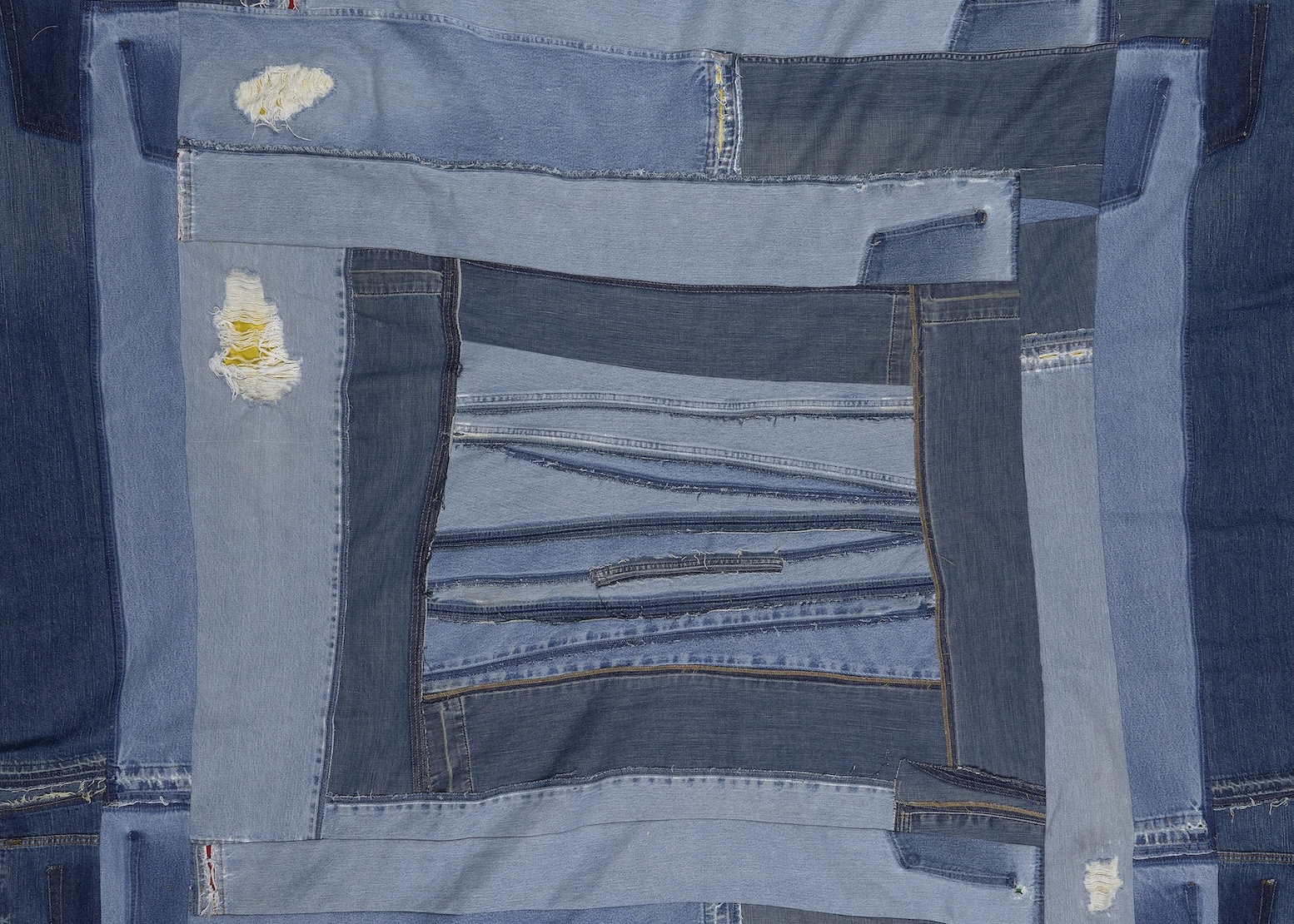Has the Bubble Finally Burst?
The NY Post certainly thinks so. They report that single-family home prices fell in the city 7.4% from July of ’07 to July ’08 (though the number is 16.3% for cities they surveyed overall). They point to a Park Slope brownstone whose price has sunk from $2.8 million in January to $2.35 million now; still…


The NY Post certainly thinks so. They report that single-family home prices fell in the city 7.4% from July of ’07 to July ’08 (though the number is 16.3% for cities they surveyed overall). They point to a Park Slope brownstone whose price has sunk from $2.8 million in January to $2.35 million now; still seems like pretty close to bubble prices to some folks around here. We’ve been seeing prices fall in some new condo projects around town. So is this it, the moment you’ve been dreading or dreaming of?
NY $$-Home Bubble Bursts [NY Post]
Bubble. Photo by Pepa….!





“You renters who are saying, well, I’ve just made 100k and hope to make another 100k by sitting on the sidelines: What if you’re wrong? What if credit loosens and a wave of frustrated buyers flood the streets?”
If that defines the risk I am taking, then I am happy to take it.
Buying real estate is so much riskier than people have thought over the past 10 years. Rising prices are like a novocaine shot directly to the risk receptors. Same happens with stocks. Here’s something to illustrate the point: buying stocks right now is really not very risky at all. Prices are low. Sure, they might go down another 10%, but it is MUCH less risky to buy now than it was a year ago. No matter how many bubbles there are, and no matter how many crashes, humans expect a market’s future to look like its immediate past.
In fact, I would say that buying real estate in Brooklyn right now is much, much riskier than buying into an S&P 500 index fund. This is particularly true on the assumption that the latter is not a leveraged bet like the former. Put $200k down on a $1m place that loses 20% in value and you are completely wiped out. Put $200k in the stock market and watch it go down another 20% and you have lost $20,000.
“It’s impossible to time the market.”
Quite the contrary. Define timing as predicting. You can be wrong but it’s better than taking a non-calculated wild guess and eenie-meenie-minie-mowing your decision and risk catching a falling guillotine.
That quote is so David Learah circa 2005. Then they turn around and say “there’s no better time to buy than now”.
“What if you’re wrong? What if credit loosens and a wave of frustrated buyers flood the streets?”
Then I’ll have to move out of Brooklyn. But what if credit tightens further and prices three-quarter or halve themselves? Who in this thread would bet on the former?
“While I think the Case Shiller data captures the overall trends, I think it’s noteworthy that the index includes zero Brooklyn brownstones since they are generally mult-family and the index is for single family.”
The index for NYC went up 200%. Brownstones went up 200%. Related on the way up, related on the way down. There is no better data that is not rife with industry spin.
The one thing I think protecting NYC right now is that the current economic crisis is a national one. It is affecting all cities, suburbs and rural areas. The last major crisis in NYC there were “better” alternatives for people who wanted to leave the city, and that just isn’t the case right now. Young people still want to come here relative to other major cities, families are not interested in moving to the suburbs with higher property taxes, higher energy bills (home and vehicle), etc. Neither rural areas nor other economic centers in the country offer better job opportunities than NYC (even with the loss of jobs we will experience–nowhere else in the nation is constructively any better). So that’s one thing that insulates NYC right now to some extent.
Also, regarding apartment prices ($400k for 1-bed, etc), these prices also will likely be more sustainable in NYC than elsewhere because of the sheer number of co-ops here relative to the rest of the nation. I tried to find an article citing data, the most recent I could find was this quote from this past April: “While the citywide ratio of co-ops to condos is about 85 percent to 15 percent, the rates in an area like Brooklyn Heights chart in at almost 95 percent to 5 percent, said Ivana Tagliamonte, a senior vice president with Halstead Property.” (http://ny.therealdeal.com/articles/foreigners-crossing-pond-and-the-river-to-brooklyn)
People have been documenting their income and forking over 20+% down-payments to get mortgages for their Brooklyn apartments throughout the entirety of this run-up in prices. They aren’t faking their income with no-doc loans, or over-leveraging their income, so fewer apartment owners in BK will have their heads under water. Yes, there may be trouble in some of the new condo developments, but that still does not take away the fact that all of these people bought co-ops that they have proven they CAN afford.
So anyway, I’m much less gloom and doom on NYC compared to everywhere else. I don’t think it’s reasonable to expect prices here to come down as much as in Vegas or Florida where there was purely speculative buying in stagnant economies that never had a real job-base and where no one actually had to document their income to get a mortgage.
Thanks Biff. Hi Wasder (my teammate). I don’t get the schadenfreude either. Last I checked, if the police force gets cut, it gets cut for us all, not just renters. If the F train stops running, it stops running for us all. As has been said, all boats rise and fall on the same wave. My boat is rented, but it’ll sink just like all the others. No joy in watching the people who own their boats sink as I go down with them.
Anyhoo. I only weighed in because sebb’s condescending tone has irritated me in the past, and I wanted to respond to it straight on. For myself, I’m keeping out of debt, saving what I can, hoping for the best, and signing a new lease when the time comes!
I’m in the same boat as gkw. I had rented since 1992, and in 2003 an aunt died and left me 17k — enough to make a dp on a 1 br on the UWS. We decided to buy (and we were in a rent stabilized apt at the time) b/c we were basically tired of renting and wanted to set up a home the way we wanted. And, frankly, we saw prices starting to rise beyond our incomes. In other words, rightly or wrongly, we saw a window that was about to close.
We sold the 1 br in Q1 2007, because we had our first child, wanted a second and needed more space. We made a killing, so we bought a 3 br in brooklyn. We did raise our monthly payments significantly, as we had no intention of selling. No doubt we’ve lost money since then, and if we had to sell today we’d take a big hit (we put down 45% cash, so we could pay off the mortgage if we needed to).
Basically, while we haven’t lowered our standard of living, we’ve severely restricted our options until prices return to 2007 levels. That may take 5 years at least.
Obviously in hindsight we should have rented last year, but this was before the mortgage crisis hit, and no matter what anyone says here, prices were not going down at that point.
It’s impossible to time the market. You may get lucky, as we were in 2003, but then again, you may not, as we were last year.
You renters who are saying, well, I’ve just made 100k and hope to make another 100k by sitting on the sidelines: What if you’re wrong? What if credit loosens and a wave of frustrated buyers flood the streets?
“Take a look at the actual Case-Shiller data. January 2000 is the baseline and since then NY property prices have increased over 92%”
No, they’ve increased about 200% since the 90’s. Look at the NYC Case-Shiller data. I keep saying this: NYC housing will bottom when this index approaches zero on a year-over-year basis (change from last year measured monthly). Study the data on the S&P site. This is exactly what set the last bottom (1990’s) and the last top (2006). The direction right now is away from zero and towards a deepening negative. No bottom in sight.
serpentor, my understanding is that if you’ve signed a contract and are heading for a closing, it’s very difficult to get out now. At a minimum, I believe you would lose your down payment. I’m not a real estate lawyer, so if any are out there, I would be interested to hear any other options one would have to get out of a closing if one experiences cold feet (barring a coop board interview fail and / or a failed inspection / failed financing if one could ever sign a contract these days contingent on inspection / financing, which I thought was almost impossible in NYC).